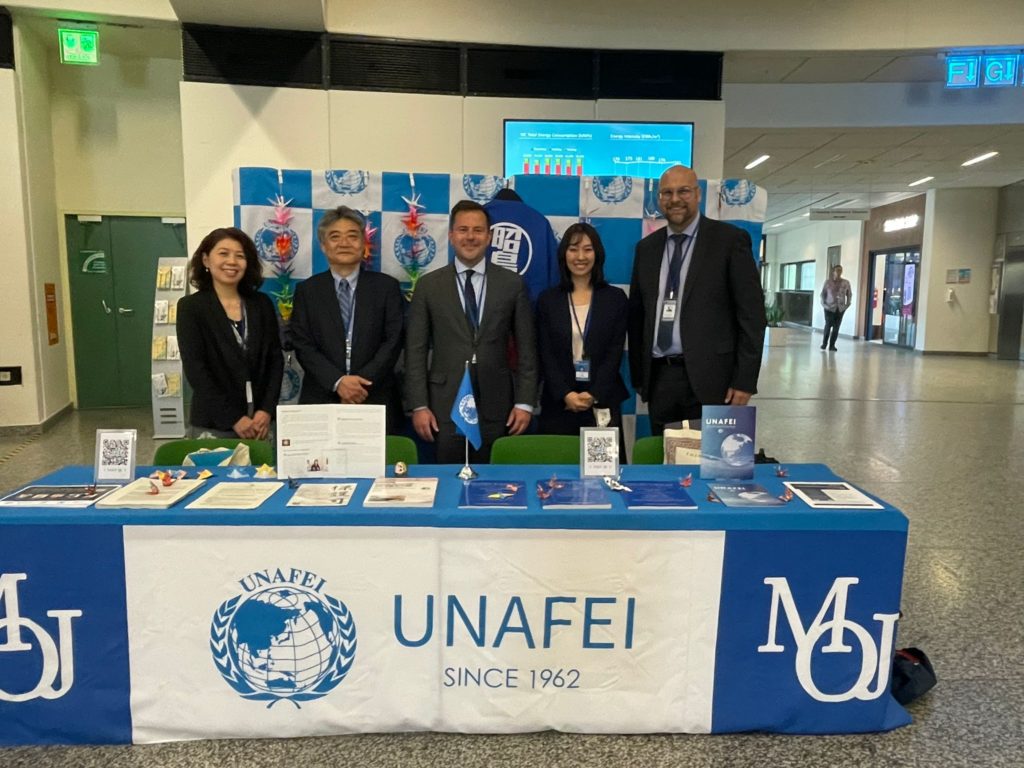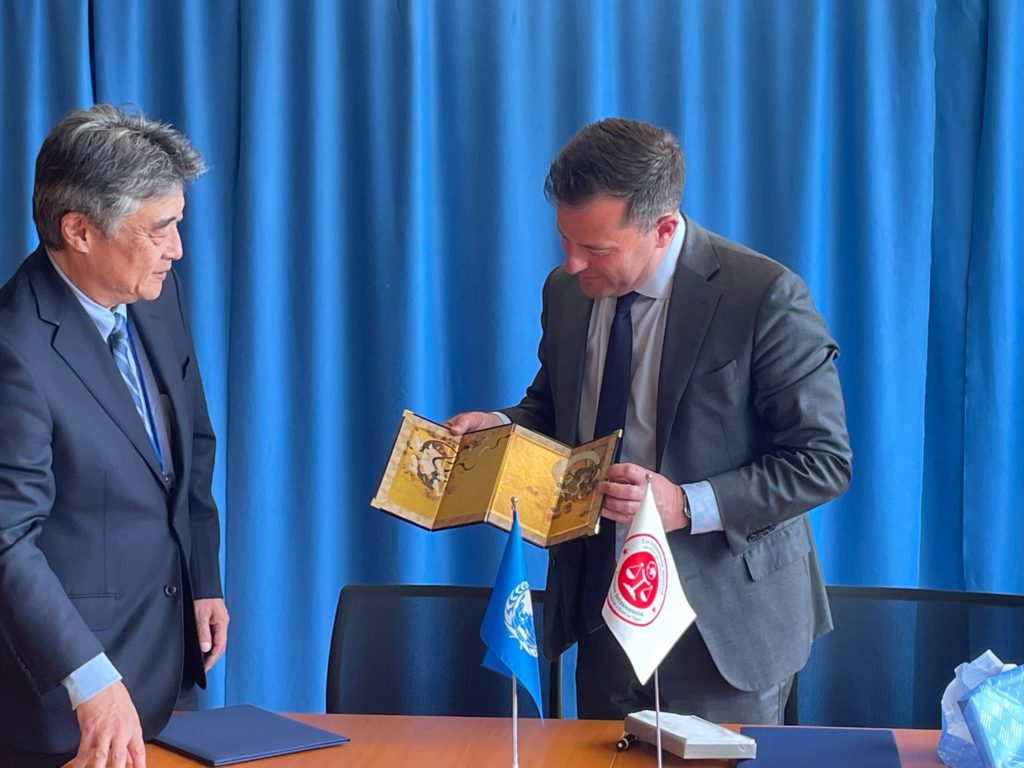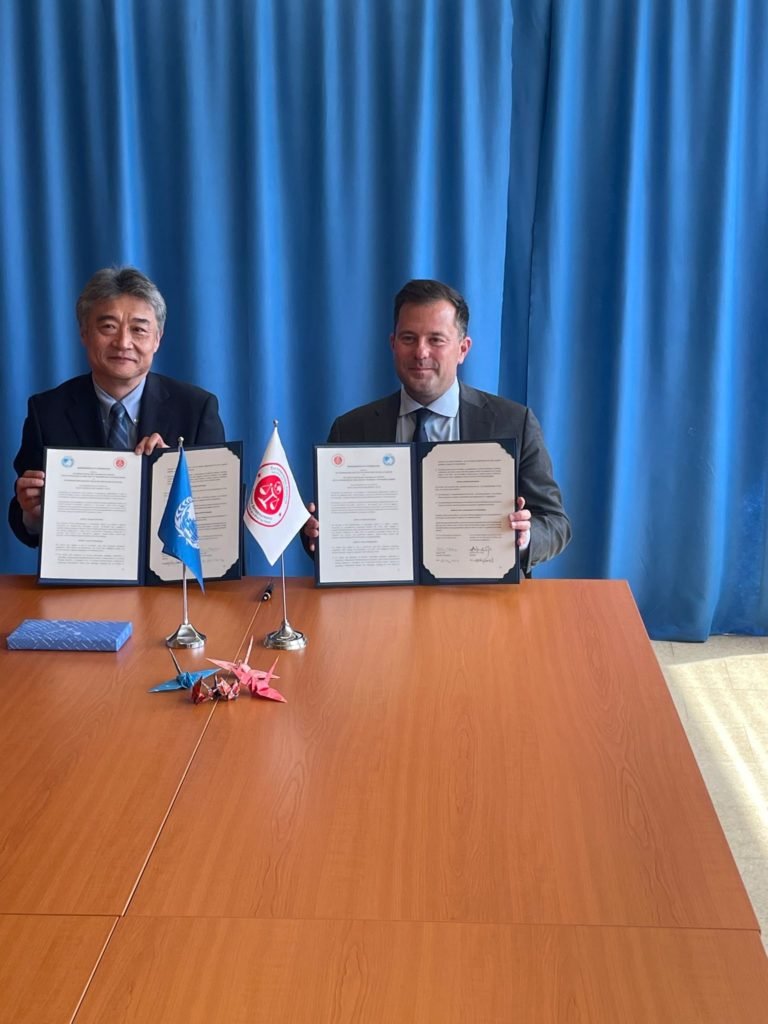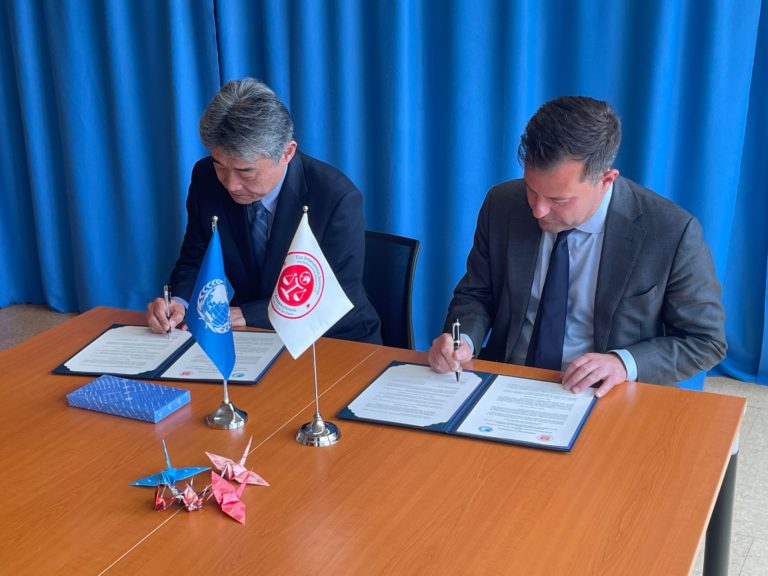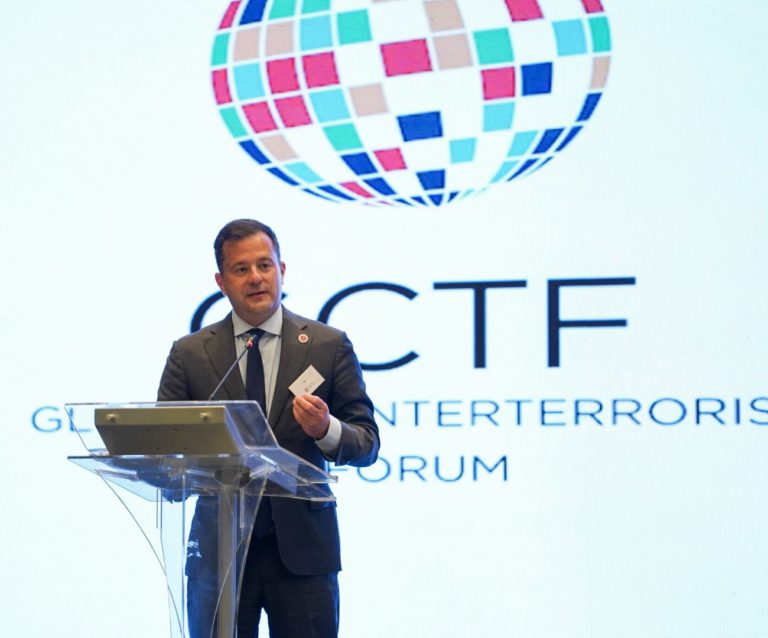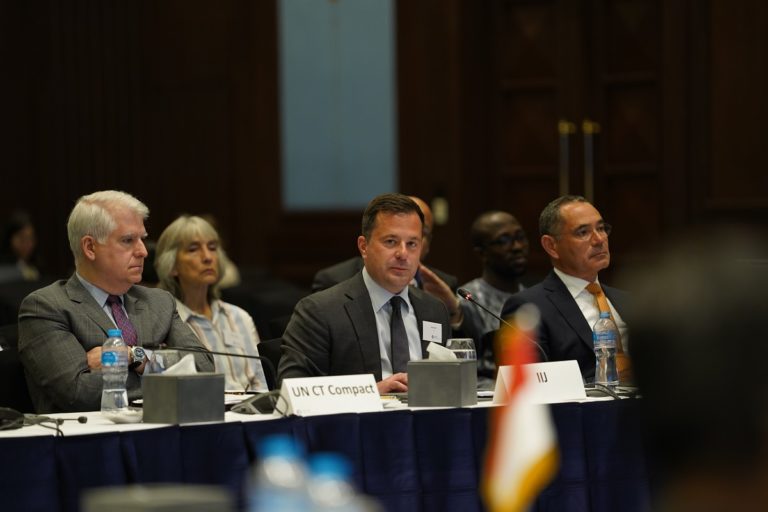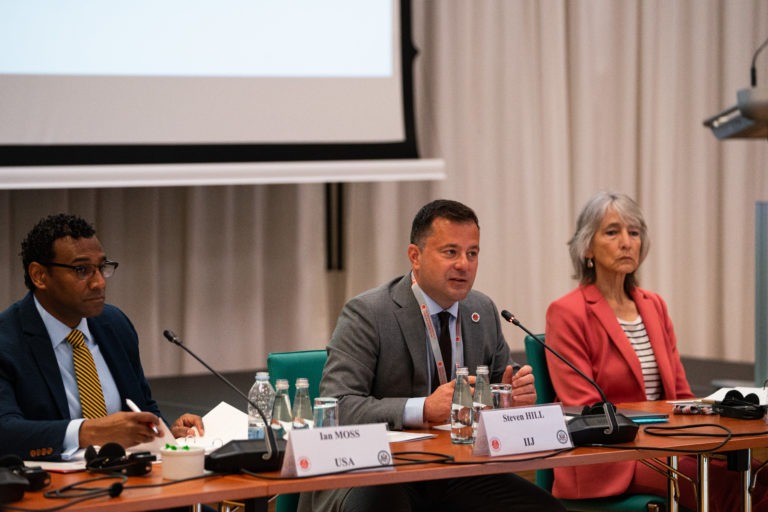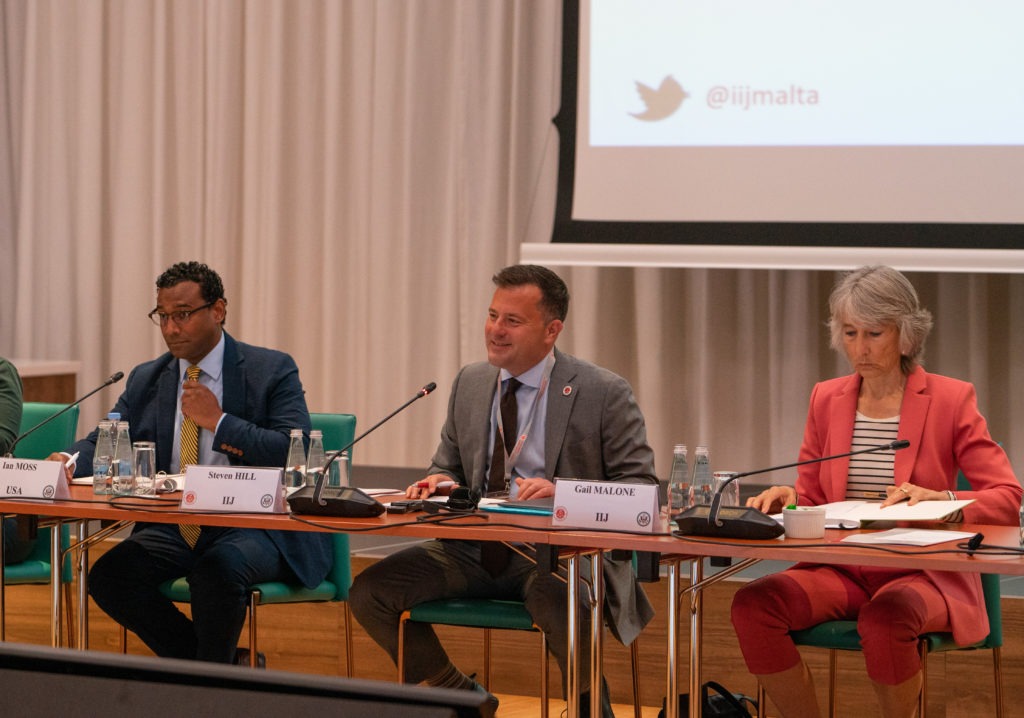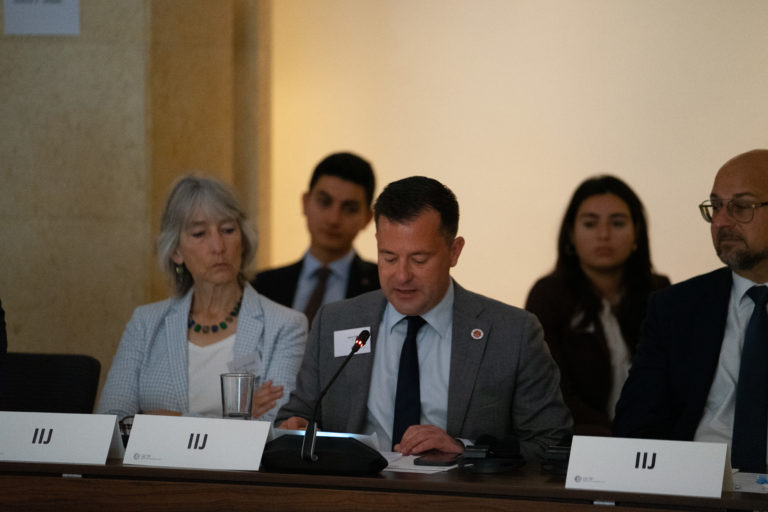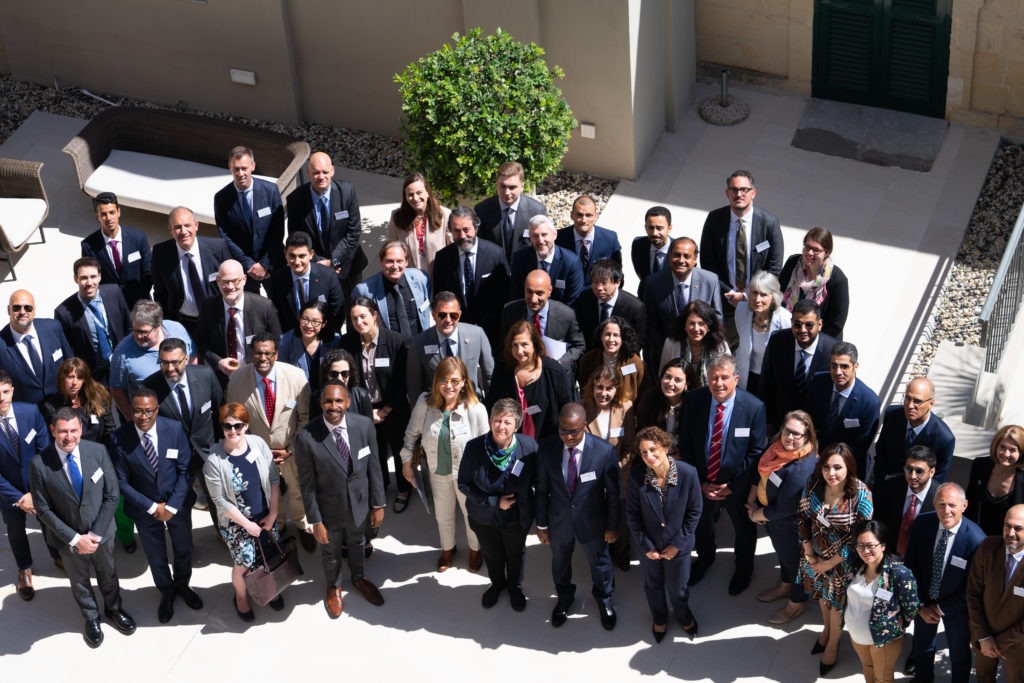Remarks of Steven Hill, Executive Secretary, International Institute for Justice and the Rule of Law
4 May 2023 – Cairo
I would like to thank GCTF Co-Chairs Egypt and the European Union for the opportunity for the International Institute for Justice and the Rule of Law (IIJ) to brief GCTF members on the status of the IIJ’s work. I would like to congratulate Morocco on its recently concluded service as GCTF Co-Chair.
The IIJ’s mandate is to work with criminal justice practitioners – judges, prosecutors, investigators, police, and others as well as policy makers – to help build their capacity to handle cases involving counterterrorism in line with the rule of law and human rights.
Our work is non-political, technical, practitioner-focused, and based on a peer-to-peer approach. Our 30-person team based in Malta includes a range of practitioners such as the former counterterrorism chief prosecutor from Niger as well as senior criminal justice practitioners from several other countries.
Given this orientation, we welcome the plan of the Co-Chairs to identify and address the needs of practitioners as a core element of their strategy for a revitalized GCTF.
Since its inception in 2014, the IIJ has worked with over 8000 participants from 125 countries.
In 2022, the IIJ organised 27 capacity-building activities with a wide range of thematic and geographic areas of focus. We worked with a total of 905 practitioners. 33% were women and 67% were men. Striving toward gender parity is an important goal for the IIJ, and we have more work to do.
Africa has always historically been, and continues to be, a main geographic focus region for the IIJ. Of the practitioners with whom the IIJ worked in 2022, 495 or 55 percent originated from 35 African countries. 25% were women and 75% were men.
Since the last Coordinating Committee meeting in September 2022, we have organized three longer-form core courses and 10 shorter-form focused programmes. We have also launched the EU-funded Counterterrorism Platform for Human Rights Engagement (CT PHARE) project, which is focused at
putting human rights at the core of action against terrorism. The activities feature a focus on the implementation of GCTF documents.
All of these activities are inclusive, practitioner-focused, designed to maximize effectiveness, and carefully monitored through a data-driven approach. They illustrate not only the depth of our commitment to working with criminal justice practitioners, especially from Africa, but also the range of international partners with which we collaborate as well as our commitment to working with civil society.
Since September 2022, we have offered our core course – the Counter-Terrorism Academic Curriculum (CTAC) – to cohorts of judges, prosecutors, and investigators from francophone African countries, Arabic-speaking countries, and Southeast Asian countries. This month, we will begin this course for anglophone African practitioners. So far, these specialized courses have included about 130 mid- to senior-level counterterrorism practitioners from 21 countries in North, Central, East, and West Africa, including 25% of women.
Other programmes have focused on a wide range of topics of relevance to practitioners. I will mention a selection of these programmes here.
In collaboration with UNODC, Interpol, and GIABA, we organised three programmes in a new initiative to combat terrorist financing. These gathered practitioners first from 10 countries in West Africa, and later from the Middle East and North Africa region, to discuss how terrorist groups exploit the non-profit sector and other cash-dependent entities to finance their operations.
We also offered three regional programmes on the investigation and prosecution of sexual violence linked to terrorism, working with UNODC, the Dennis Mukwege Foundation, the Special Tribunal in the Central African Republic and a range of other specialists on the matter.
We also gathered first French-speaking civil law practitioners in Burkina Faso, then English-speaking common law practitioners in Malawi and Uganda, to understand the unique challenges associated with investigating and prosecuting this type of crime. So far, these specialized courses gathered about 130 mid to senior-level CT practitioners from 21 countries of North, Central, West and East Africa, including 25% women.
We also launched our first regional programme on Excessive Pre-Trial Detention in West Africa, welcoming practitioners from 10 countries in the region to Benin to discuss this pressing procedural issue, which has very significant human rights implications. The debate was enriched by a range of civil society actors.
And we undertook three programmes on international judicial cooperation in Kenya and Somalia, working with UNODC, the EU’s mission in Somalia, and others.
All of these activities start with an assessment of practitioner needs to ensure the programmes are topical and relevant. They also engage practitioners not only in the development and design of our activities, but in their delivery. Recognizing and reinforcing the breadth of local expertise is central to our approach.
Our work is flexible and responsive to practitioners’ needs, including as these needs change with the evolving nature of the threat of terrorism. For example, we have on several occasions paused programme implementation to take stock of evolving requirements and adjust our work accordingly.
As implementing partner, we recently worked with Italy and Nigeria to organize the Plenary Meeting of the Criminal Justice and Rule of Law (CJROL) Working group took place in Malta on 27 April 2023. This Plenary Meeting was an opportunity to present and highlight this working group’s main priority areas and for us at the IIJ also an opportunity to introduce one of the deliverables that the IIJ is working on under the CT PHARE project: a Survey on the Right to a Fair Trial in Counterterrorism Cases.
Finally, our network of approximately 8000 alumni practitioners represents a true resource for understanding practitioners’ perspectives. We have recently completed a survey of our alumni to identify subjects that would be most helpful to them in their work.
Three of our alumni– from the Central African Republic, Mozambique, and Uganda – shared their perspectives with you during yesterday’s panel. We are grateful for their willingness to be with us for this discussion, which was an explain of the peer-to-peer approach that often generates insights and learning for all involved.
In conclusion, the IIJ’s unique, practitioner-focused way of working has not only enabled us to succeed so far, but also represents our valued added proposition in supporting the GCTF’s priorities in the years to come.
We are grateful for the generous support for the sustainability of the IIJ’s work as a GCFT Inspired Institution provided to date. This support can come in a variety of forms including financial contributions, secondments of personnel, contribution of subject matter experts to events, and other ways of ensuring that we can continue to support the GCTF in its important work.
The IIJ team is looking forward to work with the GCTF co-chairs, the CJROL co- chairs and other working groups as relevant on the priorities and is thrilled by the enhanced focus on Africa.
